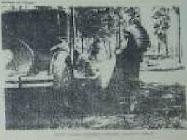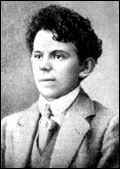The Janus-face of poetry. One one side, an art form, with its own raison d'etre and center of gravity. On the other, a social act, a form of participation in the general endeavor of living on earth.
One would think that both poets and critics, in their respective ways, would want to take this doubleness into account somehow.
Writing (and art) can present itself as a sort of Archimedean lever - a means of mirroring/distancing phenomena in order to examine and understand them. With some writers and writings, this can take the form of a moral accounting, an ethical judgement.
John Barr's essay in Poetry, in which he urged poets to get out of academia and root their poetry in life-experience, triggered a lot of criticism (not directed so much at this particular argument, but at his related call for a more popular, populist poetry). It is tempting to couch such exhortations in debonair or rugged iconolatry (Hemingway and all that) - but one could interpret his position as a subset of the broader notion of the Janus-face : that art and poetry stand on two legs (representation and reality, or experience). (Of course, the idea that two such legs exist at all has been the source of vast volumes of scholarly cogitation, debate, obfuscation, and artistic prestidigitation over the last 40 years - ie., aren't they really one leg? Or no leg at all?)
Meanwhile... all this reading & writing about Renaissance Siena has got me in an ut pictura poeiesis state of mind. So I am thinking of poetry, not just as a visual canvas, but as a civic mural in a public space, presenting a dual, dialectical, Janus-like substance.
2.28.2007
Labels:
experience,
John Barr,
poetics,
ut pictura poiesis
Subscribe to:
Post Comments (Atom)



No comments:
Post a Comment